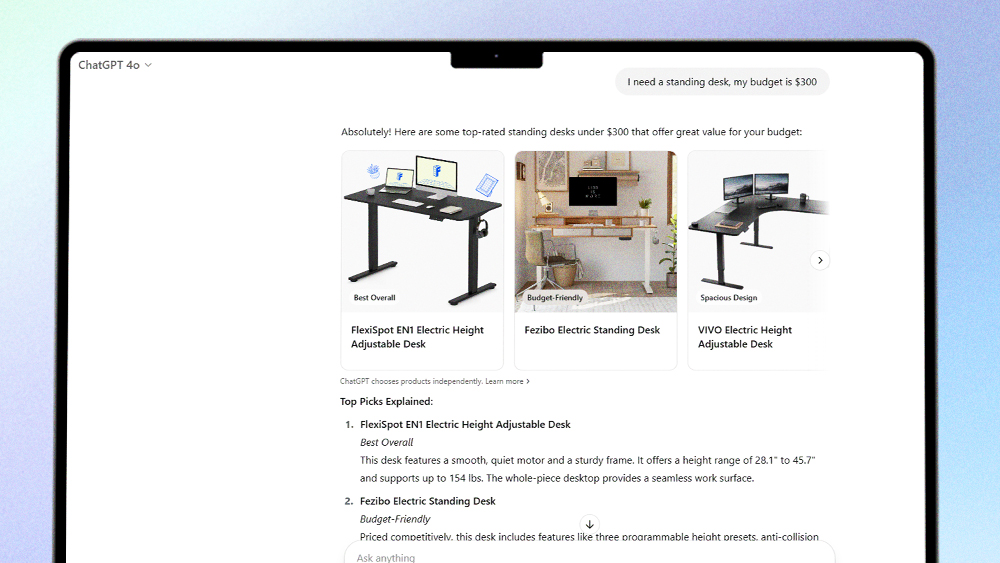Product and Engineering
OpenAI bets on AI-driven shopping with new ChatGPT features
Tuesday April 29, 2025

OpenAI integrates shopping features into ChatGPT, transforming user queries into potential purchases.
The new feature detects shopping intent and provides product carousels, review summaries, and direct merchant links.
OpenAI is seeking direct merchant data feeds to enhance its AI-powered commerce infrastructure.
The lines between conversation and commerce continue to blur as AI assistants evolve beyond mere information retrieval into active shopping guides. OpenAI is placing a significant bet on this shift, rolling out integrated shopping features directly within its ChatGPT search function, aiming to transform casual user queries into streamlined paths toward potential purchases. The update, detailed in company documentation, is being deployed globally for users of GPT-4o and 4o-mini across all tiers, including free and logged-out access.
From chat to cart: The new functionality allows ChatGPT to detect shopping intent in user prompts (e.g., "find goofy costumes for my two large dogs"). Instead of just providing text links, the AI can now surface visually rich product carousels, display AI-generated review summaries and labels like "Budget-friendly," and provide direct links to merchant sites. OpenAI positions this as a way to seamlessly guide users from expressing a need to exploring concrete options, all within the familiar chat interface, potentially reducing the friction of navigating traditional search engines or e-commerce platforms.
Under the hood: This conversational storefront currently relies heavily on data ingested from unspecified third-party providers for product descriptions, pricing, and ratings. OpenAI notes that ChatGPT generates simplified titles and descriptions for clarity and uses public website reviews for its summaries. However, the company also acknowledges potential limitations in its help documentation, citing possible delays in reflecting price updates and admitting that the initial price shown may not be the lowest available. While OpenAI emphasizes that results are selected independently and are not advertisements, the quality and objectivity of recommendations hinge on the accuracy and timeliness of this third-party data and the AI's interpretation.
Building the backbone: Perhaps more strategically significant than the initial feature set is OpenAI's simultaneous call for merchants to provide their product feeds directly. An interest form signals the company's ambition to move beyond reliance on intermediaries and build its own data infrastructure for AI-powered commerce. This suggests a long-term play to create a more accurate, potentially richer product information ecosystem directly connected to ChatGPT's conversational engine, which handled over 1 billion web searches in the past week alone.
The conversational bet: By integrating shopping directly into its widely used platform, OpenAI is betting that users will embrace this conversational model for product discovery. The success of this initiative likely hinges not only on the quality of the AI's recommendations but also on the long-term development of that direct merchant data pipeline, potentially setting the stage for a new kind of AI-native e-commerce experience.